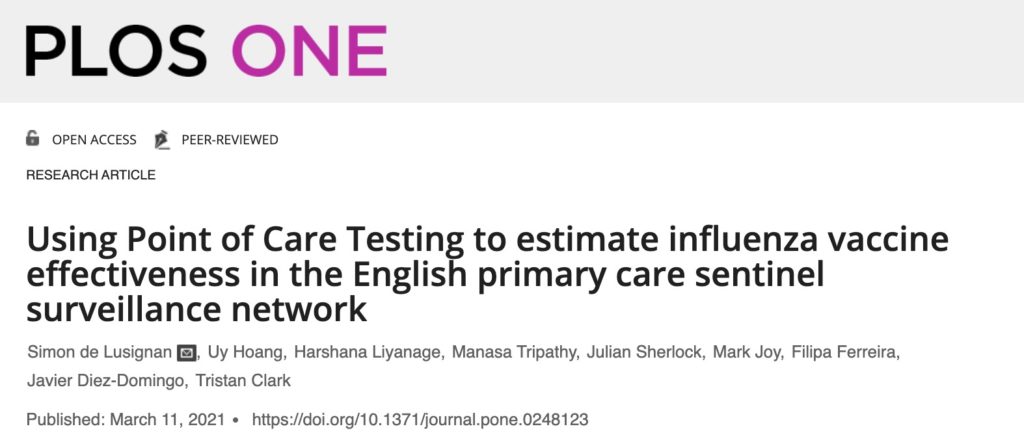The results of the study have been published in PLOS ONE journal
Vaccination is considered the most effective means for preventing influenza and its complications. Given that the circulating influenza viruses undergo frequent genetic and antigenic changes, vaccines require annual reformulation and observation to match these characteristics.
Regulatory agencies such as the European Medicines Agency (EMA) now require vaccine manufacturers to undertake studies to assess the effectiveness of influenza vaccines every year, in different settings. This includes studies in real world settings such as primary care.
In the last few years’, rapid molecular point of care test (POCT) platforms for influenza have become widely available in primary care settings. These highly accurate tests use nucleic acid amplification tests such as reverse transcription polymerase chain reaction (RT-PCR) which had previously been reserved for use in centralised laboratories. This has allowed rapid, accurate pathological confirmation of influenza infection in the community, and is crucial to undertaking IVE studies in primary care.
The study, led by DRIVE project partners, the University of Surrey, has been featured in the PLOS ONE journal and demonstrated that using influenza POCT in a primary care sentinel surveillance network to estimate IVE is feasible and provides comparable results to published IVE estimates.
As a secondary objective, the team estimated the effect of POCT testing on antimicrobial (antibiotic and antiviral) prescribing. The study confirmed that testing for influenza using POCT machines is associated with improvements in appropriate antimicrobial use.
This study provides the first evidence, to our knowledge, for the use of POCT to estimate IVE within a primary care sentinel network. Further studies however are required with larger sample sizes to ensure that robust point estimates can be obtained for overall and age-specific IVE.
Read the full piece here.

